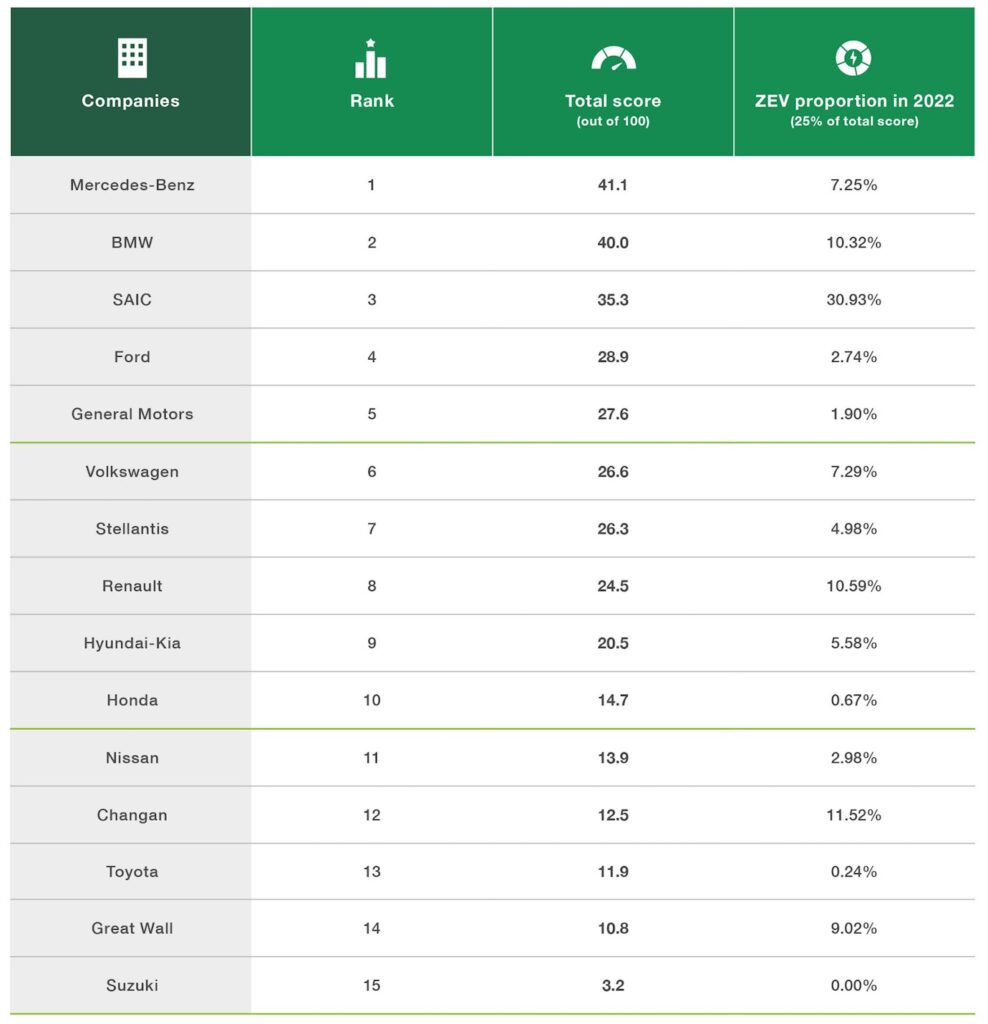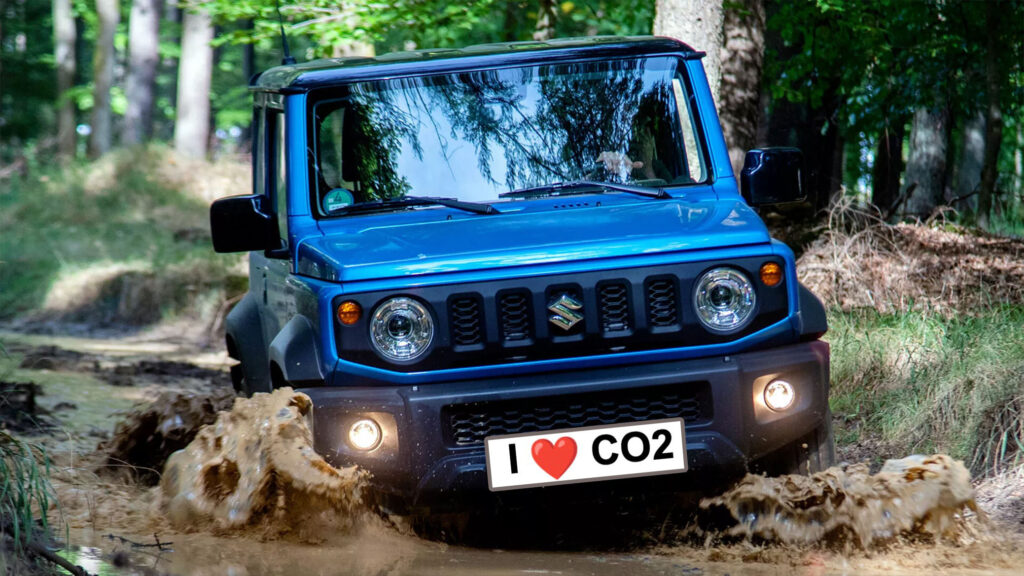Suzuki had been slammed for its pitiful efforts to reduce vehicle emissions in a new study by Greenpeace that’s tough reading for executives at all of the big Japanese automakers.
The annual Greenpeace East Asia investigation ranks the world’s car brands according to their progress in phasing out combustion engines and decarbonizing supply chains, and this year’s study ranked Suzuki dead last in large part thanks to the complete absence of electric vehicles in its lineup. The automaker does sell mild-hybrid and PHEV cars, but no pure EVs, leading to it earning just 3.2 points out of a possible 100.
“Suzuki’s decarbonisation and electrification performance is almost nonexistent in a time when nearly all major carmakers are transitioning away from ICE vehicles,” Greenpeace said in this year’s report.
But even some brands that do build EVs were ranked at the bottom of the list. China’s Great Wall was second-last with 10.8 points and Toyota, Nissan and Honda also took a beating, scoring 11.9, 13.9 and 14.7 points respectively. Greenpeace noted that fewer than one in 400 cars sold by Toyota in 2022 was an EV, but it also marked down China’s SAIC, despite 30 percent of the firms sales being EVs, because it’s dragging its heels on decarbonizing its supply chain.
Related: Climate Activists Protest By Sinking Vehicle Parts At The Munich Motor Show

At the other end of the scale Mercedes was awarded first place (though still only scored 41.1 points out of a possible 100), and BMW came second (with 40 points) despite EVs making up 10.32 percent of BMW’s sales and only 7.25 percent of Merc’s.
“Ultimately, we need traditional automakers to dramatically speed up their adoption of electric vehicles. Brands like Toyota and Hyundai face a very real market threat from all-electric vehicle-makers like Tesla and BYD, but in the face of evolving technology, they’re dragging their feet,” said Greenpeace East Asia Deputy Program Director, Ada Kong.
Greenpeace is urging automakers to end the sale of combustion engine vehicles in Europe by 2028 and in the US, China, Korea, and Japan before 2030. It wants this ICE-phase-out to be accompanied by investment in battery recycling, and a decarbonization of the steel supply chain, while also asking for a fair transition for auto industry workers in the switch to electrification. Scroll down to see the full ranking for each automaker.





